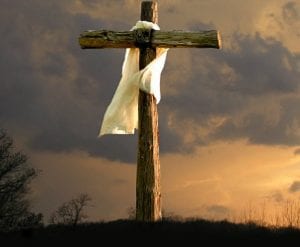
Catechism Lesson 15: The Life of Jesus Christ (Part 4)
The Jewish people and their spiritual leaders viewed Jesus as a rabbi, but some could not accept Jesus’ teachings because Jesus’ interpretation of the Law did not conform to theirs. Jesus did not abolish the Law, as the scribes and Pharisees accused Him of; but rather, Jesus fulfilled the Law by giving its ultimate interpretation in a divine way. Jesus disavowed certain human traditions of the Pharisees that made the word of God void and empty of meaning. (CCC 581) The Sanhedrin charged Jesus of blasphemy and condemned Him to death; they acted not only out of ignorance but also out of the hardness of their hearts and unbelief. (CCC 591)
Jesus celebrated the Passover with His disciples in Jerusalem. It was during this Passover meal, also called the Last Supper, that Jesus instituted the Eucharist. All three synoptic Gospels record the Institution of the Eucharist: Matthew 26:26-30, Mark 14:22-26 and Luke 22:14-20. The Gospel according to John records the Last Supper rather uniquely with Jesus washing the disciples’ feet (13:1-20), and the Last Supper discourses from chapters 14 to 17.
The Suffering, Death and Resurrection of Christ
At the center of the Gospels which the Apostles and the Apostolic Church proclaim to the world is the Paschal Mystery of Christ: His Suffering, Death and Resurrection. God’s plan of salvation was accomplished once and for all by the redemptive death of Jesus Christ, the Son of God. (CCC 571)
Jesus freely accepted His Passion and Death out of His love for His Father and for men; Jesus said, “This is why the Father loves me, because I lay down my life in order to take it up again. No one takes it from me, but I lay it down on my own. I have power to lay it down, and power to take it up again. This command I have received from my Father.” (John 10:17-18)
At the garden in Gethsemani, Jesus freely accepted the will of His Father, to suffer and to die on the Cross in order to redeem the human race. The Sacrifice of Christ is unique, for it completes and surpasses all other sacrifices (cf. Hebrews 10:1-14). By His obedience unto death, Jesus took on the role of the Suffering Servant (cf. Isaiah 53); Jesus made Himself an offering for sin and bore their iniquities. Jesus atoned for our sins and made satisfaction for our sins to the Father. (CCC 615) The Sacrifice of Christ is the source of eternal salvation; His Passion merited justification for us. (CCC 617) The Passion of the Lord can be found in all four Gospels: Matthew 26:14-27:66, Mark 14:1-15:47, Luke 22:14-23:56 and John 18:1-19:42.
In His plan of salvation, God ordained that His Son should not only die for our sins, but should also experience the condition of death, which is the separation of His soul from His body, from the time He died on the Cross until the time He resurrected from the dead. (CCC 624) Scripture calls the abode of the dead “hell” (Sheol in Hebrew and Hades in Greek) because those who are there are deprived of the vision of God. Jesus descended into the abode of the dead not to deliver the damned, but to free the just who had gone before Him. (CCC 633)
In 56 AD, St. Paul wrote to the Corinthians: “For I handed on to you as of first importance what I also received: that Christ died for our sins in accordance with the scriptures; that he was buried; that he was raised on the third day in accordance with the scriptures; that he appeared to Cephas, then to the Twelve.” (1Corinthians 15:3-5) As witnesses of the risen Christ, the Apostles were the foundation stones of the Church. The faith of the first community of believers was based on the witness of real men known to them. (CCC 642)
St. Paul also wrote: “If Christ has not been raised, then our preaching is in vain and your faith is in vain.” (1Corinthians 15:14) The Resurrection constitutes the confirmation of all of Christ’s works and teachings. (CCC 651) By His death, Christ liberated us from sin; by His Resurrection, Christ opened for us the way to a new life. Justification consists in both victory over the death caused by sin and a new participation in grace. (CCC 654)
Questions:
- When did Jesus institute the Eucharist?
- How is the account of the Last Supper different in John’s Gospel from the other Gospels?
- Which events constitute the Paschal Mystery of Christ?
- True or False. Jesus was forced to accept His Passion and Death on the Cross.
- True or False. Only the Gospels of Matthew, Mark and Luke contain the Passion of the Lord.
- After Jesus died on the Cross, why did He descend into “hell”?
- True or False. The Resurrection of Christ is the foundation of the Christian faith.